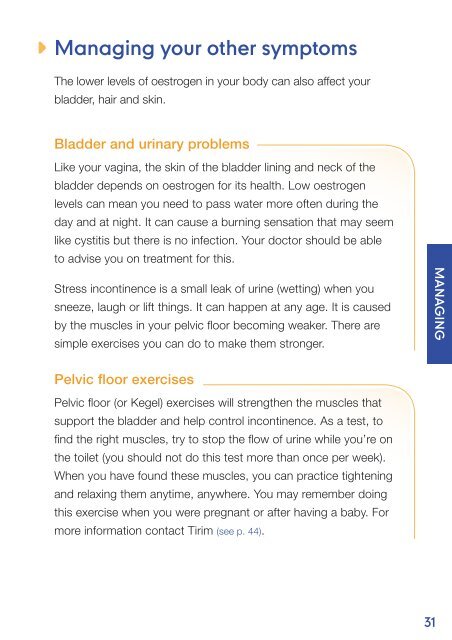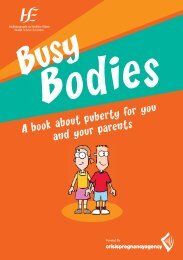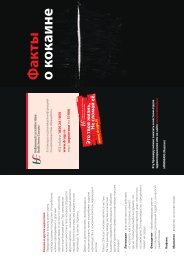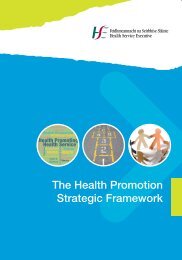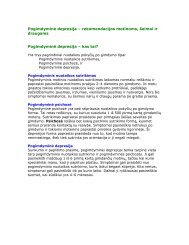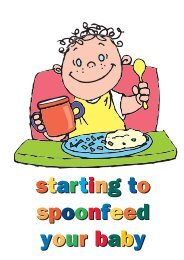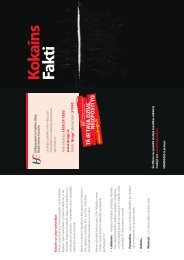Menopause - Health Promotion Unit
Menopause - Health Promotion Unit
Menopause - Health Promotion Unit
Create successful ePaper yourself
Turn your PDF publications into a flip-book with our unique Google optimized e-Paper software.
Managing your other symptoms<br />
The lower levels of oestrogen in your body can also affect your<br />
bladder, hair and skin.<br />
Bladder and urinary problems<br />
Like your vagina, the skin of the bladder lining and neck of the<br />
bladder depends on oestrogen for its health. Low oestrogen<br />
levels can mean you need to pass water more often during the<br />
day and at night. It can cause a burning sensation that may seem<br />
like cystitis but there is no infection. Your doctor should be able<br />
to advise you on treatment for this.<br />
Stress incontinence is a small leak of urine (wetting) when you<br />
sneeze, laugh or lift things. It can happen at any age. It is caused<br />
by the muscles in your pelvic fl oor becoming weaker. There are<br />
simple exercises you can do to make them stronger.<br />
MANAGING<br />
Pelvic floor exercises<br />
Pelvic fl oor (or Kegel) exercises will strengthen the muscles that<br />
support the bladder and help control incontinence. As a test, to<br />
fi nd the right muscles, try to stop the fl ow of urine while you’re on<br />
the toilet (you should not do this test more than once per week).<br />
When you have found these muscles, you can practice tightening<br />
and relaxing them anytime, anywhere. You may remember doing<br />
this exercise when you were pregnant or after having a baby. For<br />
more information contact Tirim (see p. 44).<br />
31


